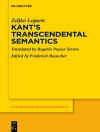In ‚Atheism Among the People, ‚ Alphonse de Lamartine delves into the philosophical and societal ramifications of atheism in 19th-century France. Written in a reflective and lyrical prose style, Lamartine employs a blend of personal anecdotes, historical context, and philosophical discourse to explore the growing prevalence of atheistic thought among the populace. This work is a critical response to the age of Enlightenment and the emerging secularism that challenged religious beliefs, offering a nuanced commentary on faith, morality, and the human condition. Lamartine’s eloquence and depth portray the tension between reason and spirituality, marking a significant contribution to the discourse surrounding religion and belief during a transformative era in European history. Alphonse de Lamartine (1790-1869) was not only a poet and statesman but also an influential figure in the Romantic movement. His personal experiences, including a rich interplay with spirituality and a deep interest in social reform, informed his exploration of existential themes in literature. This intersection of personal conviction and literary expression led Lamartine to investigate the implications of atheism on society, drawing from his diverse background in politics, art, and philosophy. This compelling work invites readers to reflect on critical questions regarding faith, purpose, and the human spirit. Recommended for scholars and general readers alike, ‚Atheism Among the People‘ serves as a thoughtful examination of belief in an age caught between tradition and modernity, making it essential reading for those interested in literary and theological studies.
Über den Autor
Alphonse de Lamartine (1790–1869) was a seminal figure in the literary and political landscape of 19th-century France. As a poet, writer, and statesman, his contributions extend across the romantic literary movement and into the revolutionary epoch of French politics. Born in Mâcon, Lamartine began his career in the foreign service before dedicating himself to literature. He became renowned for his early poetical works, including ‚Méditations poétiques‘ (1820) which established him as one of the foremost Romantic poets. Lamartine’s mastery over the French language is evident through his emotive use of rhythm and lyricism that gleans influence from the natural world and human emotion. He is also known for his powerful historical writings and political essays, such as ‚Histoire des Girondins‘ (1847), which reflect his deep engagement with the revolutionary ideals and political challenges of his era. The work ‚Atheism Among the People‘ (1850) is an illuminating example of Lamartine’s social and political reflections, addressing the spiritual and societal consequences of atheism and advocating for a harmony between religious belief and democracy. His literary style remains an enduring subject of study for scholars of Romanticism and his political activism, particularly his involvement in the establishment of the Second Republic, marks him as a key figure in French history.












